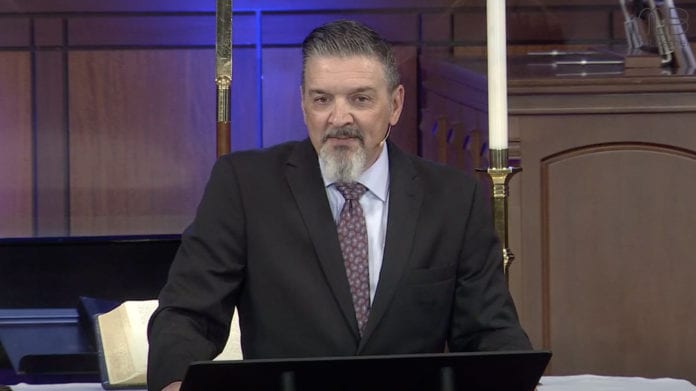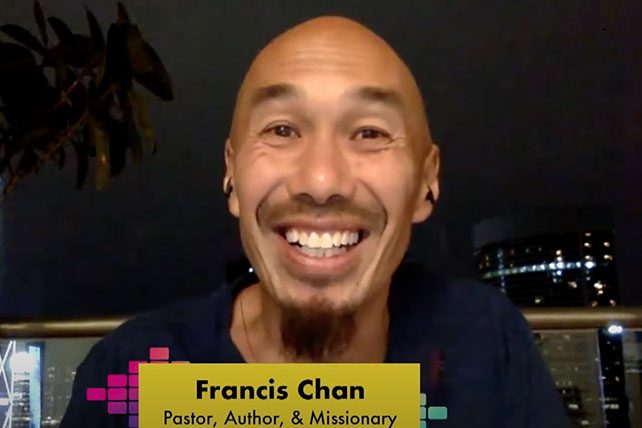During Covid-19, many churches have started offering online kids’ services. And many have decided to continue offering online kids’ services even after the pandemic lets up.
While I believe online kids’ worship services are making a difference in the lives of kids, I believe we are missing an even greater opportunity to make an impact in the lives of families.
Here’s why I am saying this.
During this pandemic, families have been spending a lot more time together. That is one good thing that has come out of all this.
And here’s where this can be a game-changer for our ministries. Families are spending more time together and one way they are doing this is by watching more content (streaming and live) together on TV.
Shows and movies that appeal to the entire family are trending up. Producers are increasingly going after content that kids and parents can watch together.
An example:
Disney+ launched in 2019, declaring that all of its content would be appropriate for any member of a family. The strategy is working. They pulled in 53 million subscribers in their first 6 months. Their growth in large part was due to the fact that families were having to stay home together.
“TV has become another way to spend time with your family, as opposed to holing up and watching it alone, or parents and kids watching separately. We have fewer entertainment options right now, so why not make TV one of the things we can do as a family. What we are going through is trauma, and it’s not going to magically get better. People are realizing that what is important is family and spending time together. TV can be a part of that—the right shows can really help people bond, and let them be more of a family through inside jokes about what they’re watching. I think that this trend will continue.” Polly Conway, senior TV analyst for Common Sense Media.
Research currently shows that the most in-demand family friendly series globally in 2020 were The Mandalorian, Supergirl, The Simpsons, Doctor Who, Cosmos: Possible World, Black-ish, Parks and Recreation, Star Trek: Discovery, The X-Files and Fresh off the Boat.
Conway went on to say this…
“I think the sense of community that TV can bring shouldn’t be understated,” says Conway. “Now that the water cooler is gone, it’s just your own family talking about what’s going to happen to Baby Yoda. TV gives you something to talk about.”
Another interesting note is this. The Millennials, who are young parents now, grew up watching cartoons. But here’s the kicker – they have never stopped watching cartoons. The idea that cartoons are just for kids has been removed.
That being said, here’s where I think we are missing a big win for families. We are only creating online for kids to watch by themselves. Kids watch the kid’s worship content and parents watch the adult worship content. Seldom do they watch together.
What if…what if…what if we changed that and started creating online content that kids and parents watch together.
This fits with what they are doing already…watching content together as I mentioned about Disney+ (the church always seems to be a step or two behind when it comes to cultural shifts).
Create content that helps kids get their parents watching with them. Add in things like pause and discuss these questions, do this game together and then talk about how it relates to the main truth of the day, watch this interactive, hands on Bible story together, etc.
Write this into the content so kids pester their parents to watch with them. We all know about pester power. It will work for this as well. The content should be written in a way that parents must engage for their kids (and them) to get the most out of it.
Your influence with kids and families will grow as you provide a shared online experience for kids and their parents. We know that parents are the biggest influence in their kid’s lives. If we truly want to influence kids, then we must influence their parents.
We all look forward to the day when all kids and families feel safe enough to return to church in person. With the way things are progressing, it looks like this could happen this year.
Even when the majority of kids and families have returned in person, there is still a huge opportunity to use the concept of shared online experiences for kids and their parents. What if…what if…you replaced the “take home paper” that few if any parents and kids engage with and instead provided on demand follow-up videos from the lesson that parents and kids watch together?
I really believe we are missing this and I believe if we will make the shift to online family content, that we can see great spiritual growth and discipleship happening in their lives.
The time is know. Seize this opportunity. I believe it can be a game-changer for your ministry.
Your turn.
Do you know of any churches that are providing online content that kids and parents watch together?
How can we best engage kids and their parents with an online shared worship experience?
How can we use online content as the new “take home paper” that parents use to disciple their children?
This article originally appeared here.














